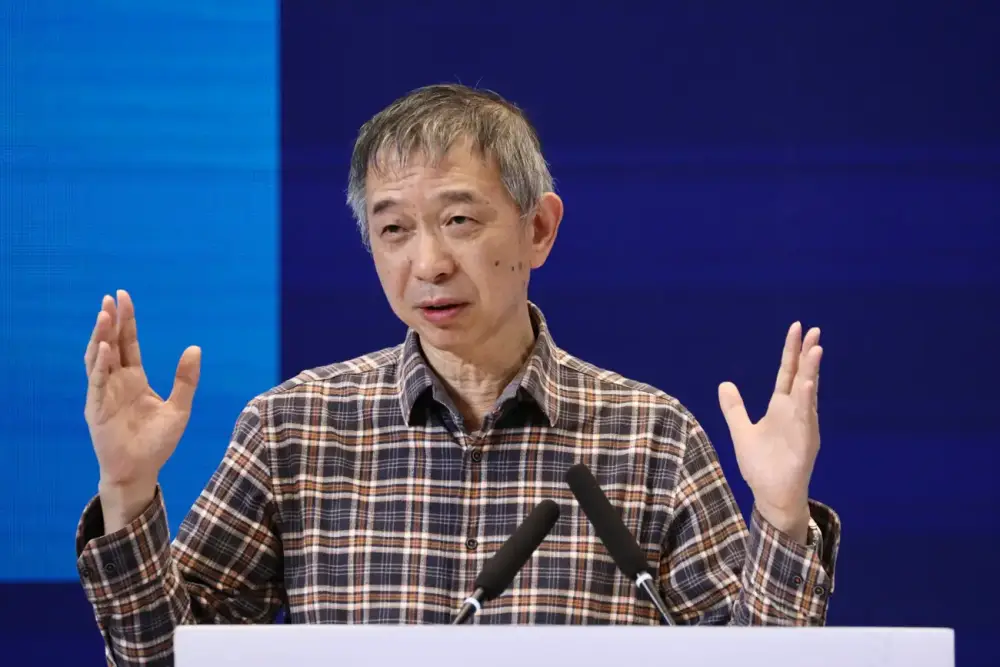
Nhà sáng lập Alibaba Cloud: Trả lương triệu đô không tạo ra đổi mới thật sự trong AI
-
Wang Jian, người sáng lập đơn vị đám mây và AI của Alibaba, cho rằng việc trả lương cao ngất cho nhân tài AI không phải là yếu tố then chốt của đổi mới thật sự. Theo ông, điều quan trọng là “chọn đúng người” chứ không phải “người đắt đỏ nhất”.
-
Ông chỉ trích chiến lược tuyển dụng của các công ty Big Tech Mỹ như Meta, Google, OpenAI – những đơn vị đang chi hàng tỷ USD để thu hút nhân tài. Ví dụ, Meta chi 14,3 tỷ USD để mua 49% cổ phần của Scale và chiêu mộ CEO Alexandr Wang, trong khi Google trả 2,4 tỷ USD để tuyển nhóm sáng lập của Windsurf.
-
Sam Altman (OpenAI) tiết lộ rằng Meta từng cố “cướp” nhân sự của mình với mức thưởng ký hợp đồng lên tới 100 triệu USD.
-
Wang Jian nhấn mạnh: “Khi tất cả mọi người đều biết ai là nhân tài, thì tốt hơn là bạn không nên theo đuổi họ nữa.” Thay vào đó, ông nhấn mạnh đến tầm nhìn và khả năng xây dựng điều chưa ai biết đến.
-
Ông cũng cho rằng các công ty công nghệ Mỹ quá tập trung vào việc duy trì thành công hiện tại thay vì khám phá điều mới, trong khi Trung Quốc lại có cơ hội khám phá công nghệ chưa được biết đến.
-
Về cạnh tranh trong lĩnh vực AI tại Trung Quốc, Wang gọi đó là “cạnh tranh lành mạnh” chứ không khốc liệt. Ông mô tả mô hình phát triển là một chu kỳ: công ty này dẫn đầu, sau đó chững lại, công ty khác vươn lên rồi người đầu tiên bắt kịp.
-
Trung Quốc đang tích cực phát triển các mô hình AI nguồn mở như DeepSeek R1, Hunyuan, và tích hợp chúng vào các nền tảng khổng lồ như WeChat và công cụ tìm kiếm của Baidu.
-
Theo CEO Nvidia – Jensen Huang, các nhà nghiên cứu AI tại Trung Quốc thuộc hàng giỏi nhất thế giới. Ông nhận định Trung Quốc và Mỹ đang “ngang tài ngang sức” trong cuộc đua AI và chip AI.
📌 Wang Jian cảnh báo rằng tuyển đúng người quan trọng hơn trả lương cao. Trong khi Big Tech Mỹ đổ hàng tỷ USD vào nhân tài AI, Trung Quốc lại phát triển mô hình nguồn mở như DeepSeek và Hunyuan. Cạnh tranh AI nội địa được đánh giá là lành mạnh, giúp công nghệ tiến nhanh hơn qua các chu kỳ. Trung Quốc đang nhanh chóng thu hẹp khoảng cách với Mỹ trong cuộc đua AI.
https://www.businessinsider.com/ai-talent-paychecks-alibaba-cloud-founder-china-silicon-valley-2025-7
Alibaba Cloud founder says early innovation doesn't need top-dollar hires: 'What happened in Silicon Valley is not the winning formula'
- Paying top dollar for AI talent isn't necessary for true innovation, said Alibaba Cloud's founder.
- "The only thing you need to do is to get the right person," Wang Jian said in an interview with Bloomberg.
- "What happened in Silicon Valley is not the winning formula," he added.
China's AI race is 'very healthy' competition
Thảo luận
Follow Us
Tin phổ biến



